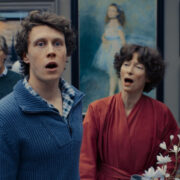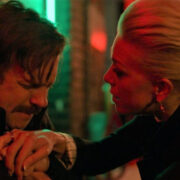A FALL FROM GRACE: A Machine-Made Movie
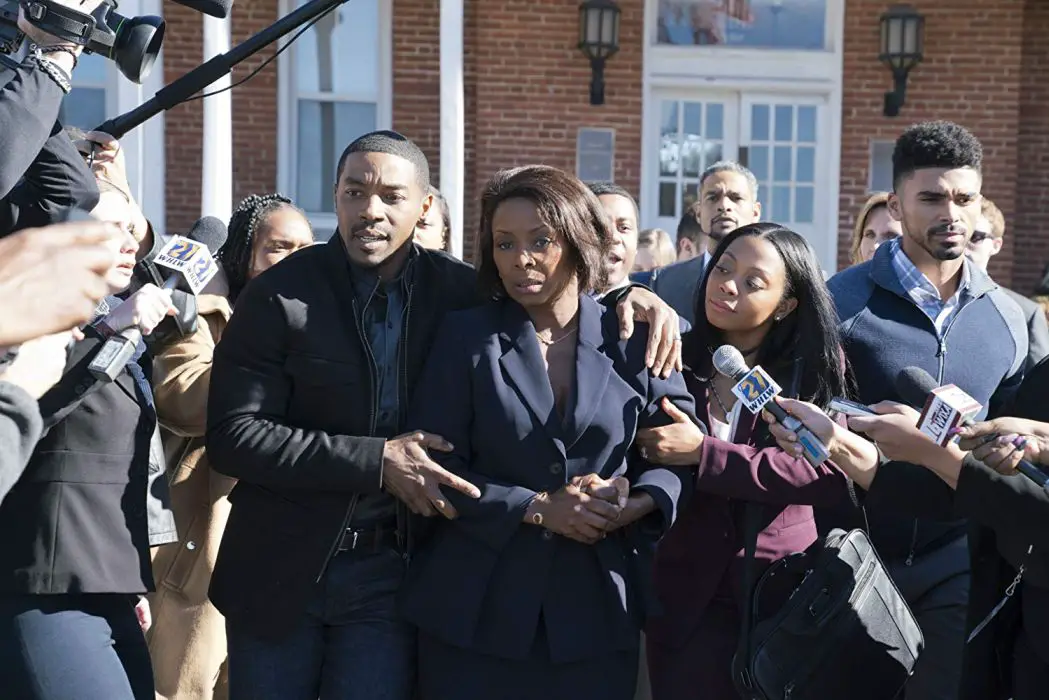
John Stanford Owen received his MFA from Southern Illinois University,…
Tyler Perry contains multitudes.
To suss out his latest release, A Fall from Grace, one must first understand his nature as a creator. Zigzagging between diametric camps, he splits his creative time between stock character and serious dramatist. As the comedian who brought the sanctimonious, tough-love aficionado Madea to life, he stands amid a subset of performers forced to drag around the anchor of a single role. But on the other side of that equation, he also writes, directs, produces, and acts (all four) in films that tackle family dynamics, focus on the experience of growing older, and explore the acidic sting of betrayal.
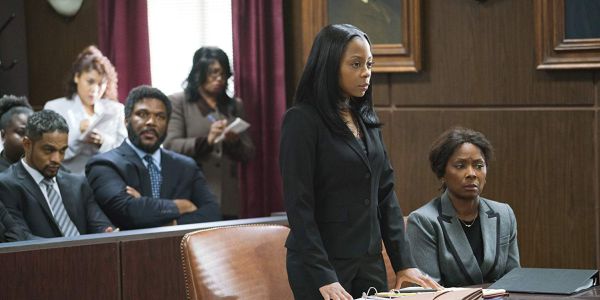
It takes something more than nimbleness to execute such a tightrope act, but after decades of churning out movies, the man beneath the church lady wig built a cinematic playground where only he makes the rules. No one denies that the worlds Perry creates belong to him, and this tenet rings especially true with respect to the environment he constructs in A Fall from Grace. But, as the movie leans more and more on a paint-by-numbers template, ownership becomes a moot quality.
Even if you hate his work with the burning intensity of a jet engine, you must admit that he pays zero attention to the creative chokeholds other studio giants place on their directors. If nothing else, these accolades earn him the distinction of auteur, regardless of the chilly reception his films so often receive. His first Netflix release follows that exact trend.
The story chronicles both the personal and criminal trials of the titular Grace (Crystal Fox), a downtrodden grandmother and Sunday school teacher who suffers psychological torture from almost everyone she encounters. Watch any number of dramas from this director, and you notice this schtick repeating itself.
Diary of a Sad Lady
After her first marriage ends in heartbreak, Grace resigns herself to a life of relative solitude. When she encounters a new romantic partner—a six-packed, tattooed photographer some years her junior—she regains her zest for life. The proposal happens, then the wedding, and after that, her circumstances become terrible again. Given the streak of crummy luck, when her husband Shannon (Mehcad Brooks) turns up missing, Grace stands accused of murdering him.
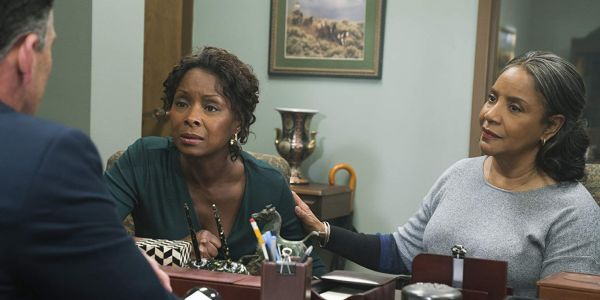
The sad, middle-aged lady archetype appears often in Perry’s films, but that familiar character occurs with an unapologetic intensity in his latest. If she appears in a scene without crying, tears shall no doubt flow in the next. No stranger to melodrama, the director follows his self-designed formula with such dogmatic rigidness that part of me yearned for Madea to pop on screen to break up the monotony. Alas, my pleadings went unanswered.
Rest assured, however, that Perry makes his customary appearance, albeit in a slightly less exaggerated role. Still playing a stock character, this time he gives us a mean-spirited boss intended as an antagonist for the supporting role of Jasmine, a public defender played by Bresha Webb, who despises being a lawyer and defending “low-lives and criminals.” In landing Grace’s case, she gets her shot to help an innocent person. In this regard, the director uses Grace’s non-criminal status as a driving force throughout the run time. The script reminds us again and again that the character bakes cookies and goes to church, so no way she committed murder. Right?
Following a Mechanical Formula
Loaded with one-dimensional characters, plot exposition, stereotypes, and forced dialogue, A Fall from Grace flatlines early on and keeps digging deeper and deeper. After this many films, most all of them profitable, it seems as though Perry found a checklist that damn near guarantees commercial success. Meanwhile, I’m reminded of the scene in “The Producers” when Leo Bloom tells Max Bialystock how a lackluster play brings in more cash than one that wins applause.

With a returning audience who propels his work forward, Tyler Perry epitomizes every notion of a prolific output. In fact, he cranks out projects at a cheetah’s pace thanks to a production studio that he owns and operates, a 330-acre film factory that empowers him to create the movies he wants to, for the people he wants to. In the case of A Fall from Grace, the project took only five filming days, leaving no room for any vision other than Perry’s. To that end, in an interview with Level magazine, the auteur expands on his accelerated output, “It takes me two weeks to write anything. A full season, a film script. Two weeks. It’s my job.”
The writing alone provides evidence of the film’s rushed creation. The title’s double entendre provides only one example of rhetorical laziness. While no one expects or wants lofty Shakespearean dialogue, we might anticipate something more original than idiomatic stock phrases. With another script, one penned by screenwriters who value character nuance and richer backstories, the film might give us something other than a predictable, rinse-and-repeat template.
A Fall From Grace: Conclusion
In the end, it feels as if a machine made the movie. Though this film packs in more twists than a Chubby Checker performance, the surprises come with a penance of listening to a series of haphazard colloquialisms and watching lifeless, one-dimensional characters make predictable decisions. The final product, a 2-hour phoned-in schlock, proves that when Perry mentions his film wrapped in less than a week, he is not exaggerating.
Got a favorite Madea film? Let us know.
A Fall From Grace is now streaming on Netflix.
https://www.youtube.com/watch?v=KxLb3aLb5j4
Does content like this matter to you?
Become a Member and support film journalism. Unlock access to all of Film Inquiry`s great articles. Join a community of like-minded readers who are passionate about cinema - get access to our private members Network, give back to independent filmmakers, and more.
John Stanford Owen received his MFA from Southern Illinois University, where he also taught English courses. When JSO is not penning reviews and essays on cinema, he's reading and writing poetry, walking with his dog, or dancing to Radiohead.


